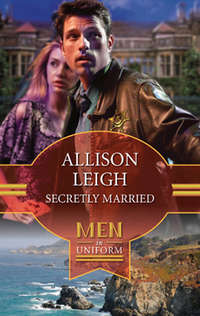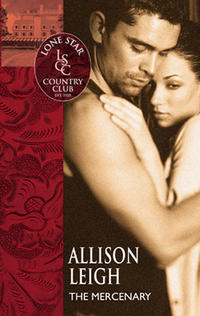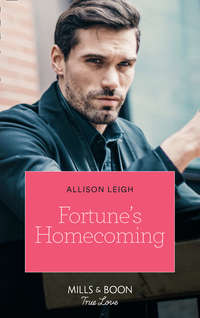
Полная версия
A Montana Homecoming
“Where are you staying?” he asked.
It was the last question she expected. Not that she’d expected any questions from him, since she had been naive enough to believe he’d be far, far from Lucius. That had been his plan that one summer. To finish seminary and take his ministry wherever he could help people the most.
“I’m staying here,” she told him.
His mouth tightened. Then, in a clearly conscious effort, his entire expression gentled. “Do you think that’s wise?” His voice was even more gentle. More careful.
Her spine stiffened. “You needn’t speak to me like I’m deranged, Sheriff.”
“I wasn’t.” Again in a gentle, careful tone.
She understood where it came from, and why, but she still hated it. Hated that it was coming from him, most of all. “Yes, you were. Are.” She also hated the fact that she was the one sounding defensive. She swallowed and scrambled for her wits. Her composure. She was a composed woman. Had always been a composed woman.
Except for the brief time when she was more than a girl but not yet a woman and had spent more hours than she could remember in a room where there were no sharp corners.
“This is…was…my father’s home. I’m staying here. Unless there’s some law against it?”
He didn’t look pleased. “By yourself?”
“Yes,” she managed calmly.
Something in his eyes made him look even less pleased. Anyone else and she might have blamed it on the dwindling light, or on the bare bulb that would have sufficed as a porch light if it had been a higher wattage.
“Here.” He abruptly pulled out his wallet and slid a card from it. “Call me if you need anything.” He extended the business card.
She plucked the card from his fingers, careful not to touch him. “I won’t need anything,” she assured him stiffly. “But, thank you.”
“I’ll come by and check on you in the morning.”
“I don’t need to be checked on.”
“You’re not—”
“Capable enough to stay alone in the house where I grew up?” She crossed her arms. “I’m not crazy, Sheriff.” Not anymore.
“Nobody said you were, Laurel.” His deep voice was smooth, so incredibly smooth, that they might just as well have been exchanging pleasantries on the steps of his daddy’s church. “But this place is—”
“What?”
“Falling apart,” he said simply.
Truthfully.
The defensive balloon that had puffed up deflated, leaving her feeling off-kilter. “I’ll be all right.”
“The furnace stopped working last year. Roger never had it fixed.”
“It’s the middle of June. I won’t need the furnace yet.”
He barely waited a beat. “Yet?”
She unfolded her arms. Folded them again. She’d been debating the idea of staying since before she’d driven back into the town limits. It wasn’t as if she had anywhere else to go. Not since two weeks ago when she’d called off her own wedding at the very last minute. Finding out that Shane was still in Lucius didn’t change a thing where her plans, her nonplans, were concerned.
Did it?
“It won’t be cold for months. I’ll have plenty of time to fix the furnace,” she said more confidently than she felt.
She had time, yes. Money? That might be another matter. A matter she intended to keep to herself.
“You can’t be planning to stay.”
He actually sounded horrified, and it surprised her enough that she managed not to get defensive over the flat statement. “Why not?”
He jammed his hat on his head. “This house isn’t fit for anyone to live in it.”
“How do you know?” She highly doubted he’d spent Sunday afternoons visiting with her father.
“Because I make it my business to know what’s going on in my town.”
“Including the habitability of my father’s house.”
“Yes.”
“How sheriffy of you.”
“You’ve earned yourself a smart mouth somewhere along the way.”
She managed an even smile. But the truth was, she didn’t have a smart mouth. The only thing she’d done in her entire adult life that wasn’t agreeable and sensible was walking out on her wedding to a perfectly decent man. “Maybe I’ve picked a few things up from the third-graders I teach. You went from the Lord to the law,” she observed. “Time brings all sorts of changes to a person.”
“Time doesn’t change everything,” he said flatly.
She didn’t know what on earth to make of that, not when they were both living evidence to the contrary. So she just stood there. And the silence between them lengthened.
Thickened.
She cast about in her mind fruitlessly for something—anything—to break the silence, only to gasp right out loud when a metallic chirp sounded.
Shane made a muffled sound and pulled a minute cell phone off his belt. “Sorry,” he murmured and flipped it open. “Golightly.” His voice was brusque.
She, for one, was perfectly happy for the intrusion as she drew in a long, careful breath. His call, though, was brief, and when he snapped the phone shut, he was very much in lawman mode.
“I’ll check on you later.” He settled his hat and turned on his heel, clearly expecting no arguments from her this time as he stepped off the porch past the rotting steps.
She didn’t have the nerve to argue, anyway. Not when he looked so grimly official. Instead she stood there in the doorway, hugging her arms to her waist, and watched while his long legs strode across the tired yard toward the tan SUV parked behind the little car she’d rented at the airport in Billings.
He wasted little time backing out and driving up the road toward town, but she still had plenty of time to study the word that was emblazoned in dark-green printing on the side of his SUV: Sheriff.
Shane was the sheriff.
And it was a sheriff who’d arrested her father one hot summer night for something he hadn’t done. Something she’d never, ever believed he’d done.
The brake lights of Shane’s truck—the sheriff’s truck—disappeared and Laurel finally drew in a full, cleansing breath.
It didn’t quite stop the trembling inside her, but it helped.
She let her gaze drift up and down the road. One way, the way Shane had driven, lay the town proper. The other way, beyond a sharp curve that skirted the stand of tall, centuries-old trees, lay nothing but miles and miles of…nothing.
She’d come back to bury her father.
But once she’d done that, once she’d dealt with his belongings, with the house, there was nothing else for her here. As much “nothing” as what lay beyond the curving highway.
Unfortunately, Laurel knew as she finally turned and went back inside the house, there was nothing for her to return to in Colorado, either. No job. No home. No fiancé.
Maybe she was just as crazy as Shane probably thought.
Chapter Two
“I heard you were here, but I had to see it with my own eyes.” The voice was deep and smooth as molasses and definitely amused.
Laurel set the heavy bag of weed killer in the cart next to the bucket and cleansers she’d already put there and turned toward the voice, a smile already forming. “Reverend Golightly. I was going to call you later today.” She dashed her hand quickly down her thigh, then extended it. “It’s so good to see you.” The pleasure in her voice was real. In fact, it was the first real pleasure she’d felt in weeks, and definitely since she’d arrived in Lucius the previous day.
He cocked an eyebrow and his light-blue eyes crinkled at the corners. “Oh, Laurel, honey, we can do better than that.” He swept her up in a great hug, lifting her right to the tips of her toes there in the aisle of Lucius Hardware. “You’re the spitting image of your grandmother, do you know that?”
She laughed and very nearly cried as she hugged him back. “I’ll take that as a compliment.”
“It was meant as one. In her day, Lucille was the prettiest woman in five counties. Until my Holly came to town, that is.” He grinned and settled her on her feet, keeping hold of her hands and holding them wide as he stepped back to look at her. “I’m as sorry as ditch water that it took something like this to bring you home, Laurel.”
The knot in her throat grew. “Me, too.” She swallowed harder and peered up into his face. “You haven’t changed a bit, Reverend Golightly. How is your family?”
His eyes crinkled again. “Beau. And they’re all fine. Stu’s fit as a fiddle,” he told her. “Still single and he’s got a small spread outside of town a bit—Hal Calhoun’s place if you remember it—plus he runs the garage down on Main Street. Evie’s running Tiff’s. She has three kids. They’re all getting on their feet a little since she and her husband divorced.”
Laurel would be better off if she couldn’t remember Calhoun’s place. Or his barn.
“Your wife doesn’t run Tiff’s anymore?” For all of Laurel’s childhood, her mother had been employed as a maid at the bed-and-breakfast operated by Beau’s second wife, Holly.
“She passed away some time ago,” Beau said quietly.
Laurel pressed her hand to her chest, dismayed. “Oh, I’m so sorry. I had no idea.” Her conversation—if one could call it that—with Shane hadn’t gotten to such matters. And she hadn’t talked with anyone else in town since she’d arrived.
“No reason you would, child,” he assured gently. “But she’d be pleased as punch to see you back in Lucius. Hadley took over running Tiff’s after we lost her mother, but she got married not long ago to Dane Rutherford, and now Evie’s trying her organized little hand at it.”
Laurel paused at the name. “Dane Rutherford?”
Beau grinned, his eyes brightening again with amusement. “The Dane Rutherford. Didn’t they have newspapers where you lived? Sure did make the news around these parts.”
“I’ll bet,” Laurel murmured. The Rutherford name was as familiar as Rockefeller and Kennedy. She shook her head, amazed. Hadley was a few years younger than Laurel and had always had her nose in a book. How on earth had she met someone like Dane Rutherford? “Well…wow.”
“He puts his pants on one leg at a time, too,” Beau assured mildly. “So far he seems good enough for my Hadley. And then there’s Shane, of course. He’s the sheriff, if you can believe it.”
Her face felt a little hot. They stepped aside to let a woman bearing a flat of daisies pass. “I know. He told me my father started going to church.”
“You’ve talked to Shane?” Beau was obviously surprised.
“He stopped by the house yesterday.” And surprised her greatly by not coming by that morning as threatened.
“He didn’t mention that when I saw him this morning at the hospital.”
Her nerves jangled. “Hospital?”
“Nasty three-car accident on the south side of town. Aside from handling the reports and such, he’s friends with one of the women who got hit. He’s probably still there.”
Even as relief that Shane was at the hospital in his official capacity doused her nerves, an odd sense she couldn’t quite identify took its place. “I hope she’s all right.” Shane obviously hadn’t been as unsettled by their encounter as she had been, or he’d have mentioned it to his father.
“Fortunately, no one was seriously injured,” Beau said, mercifully oblivious to Laurel’s undeniable sense of…what? Pique? Disappointment? Relief? “Now, what about you? Your father said once that you’d become a teacher.”
Laurel nodded. In a way she was as surprised that her father had told anyone anything about her as she was that he’d evidently found religion. “Elementary education. I, um, I’ve been at a school in Denver—Clover Elementary—teaching third grade.”
“Surprised you’re not teaching music.”
She shook her head. She hadn’t sung in public since the day her mother died.
Fortunately, Beau let that topic lie as he surveyed the items in her cart. “Looks like you’re planning on exercising your elbows a bit.”
“I’m staying at Dad’s place. It needs some work.” He probably knew that.
“Well, if you decide you prefer staying elsewhere, you just give Evie a call. I know she can come up with a room for you at Tiff’s that would be comfortable.”
Whether or not she could, Laurel wouldn’t be able to afford it. Not even if Tiff’s room rates hadn’t budged a dime in the past decade. “I’ll keep that in mind.”
Beau’s smile was ever kind, as if he’d divined her thoughts perfectly. “It’s good to have you back, Laurel. Everything is going to be fine.” He hugged her shoulder. “Now. We’ll need to talk about the service for your father sooner or later, but I can see you’re plenty busy and I’m on my way over to the hospital for my afternoon visitations. You just let me know when you’re ready to talk about it, and I’m at your disposal. In the meantime, though, you can still call me if you need anything at all.”
Why it was so much easier to take that advice from Beau than it was from his son, Laurel didn’t know. But where she’d bristled at Shane’s command, she was touched now by Beau’s concern, and she gave him a hug back. “I will. Thank you.”
He gave her a little wink and headed down the wide aisle.
Laurel finished loading up her cart. She appreciated Beau’s matter-of-factness about her father’s service. Her father had died nearly a week ago. The attorney who’d contacted her had informed her that the funeral home would simply wait for instructions from her. The only rush for a funeral and burial would be whatever rush Laurel felt.
And she didn’t really know what she felt.
So she concentrated on the immediate reality.
Her father’s house was a pigsty. And she needed to clean away the mess left by years of neglect before she could begin to figure out what repairs the structure needed. Then maybe she’d consult a real estate agent.
She made her purchases and headed back to her father’s home. On Main Street she passed the busy-looking garage and auto-body shop that undoubtedly was the one Beau had mentioned Stu ran.
The sheriff’s office was a little ways up the road. She didn’t allow herself much more than a glance that told her the brick-fronted building hadn’t changed during her absence.
She passed the Luscious Lucius, which used to serve up the best breakfasts she’d ever had, and which—judging by the cars parked in front of it—was still doing a fine business for lunch.
A little further, beyond the businesses, she passed Tiff’s. The enormous Victorian house looked just as distinctive as it always had, its sharp angles softened by curlicues and lace. The colors hadn’t changed, either, over the years; still an eye-popping combination of pink and green.
It seemed hard to believe that Beau’s wife was gone now. That Evie was running it. Laurel’s memories of Evie were of a light-hearted blond beauty more interested in winning the county science fair than helping with her stepmother’s business.
At her father’s house she parked in the cracked driveway bordered by overgrown weeds, yellow grass and bare dirt. There was no point in trying to enter the small, detached garage that sat next to the square house. It was filled to the rafters with about a million years of old newspapers and other junk. Her father’s rusting pickup truck was parked in the center of it all, and since there was nothing under the hood but cobwebs and yawning space, the pickup wasn’t going anywhere.
She unloaded her trunk, dumping everything on the porch next to the front door and nearly tripped over the cat that appeared out of nowhere. The animal yowled and streaked around the side of the house.
Probably belonged to the owner of the lovely rambling house built high on the hill behind her father’s. The house certainly hadn’t been there when Laurel was growing up, and as far as Laurel could determine, it was the only thing new in this area.
She eyed the worn, tired house where she’d grown up. A person would have to be desperate to buy it in its current state when there was an entirely new and modern development on the other side of Lucius.
A person might have to be desperate to stay in it.
She pushed aside the thought. She wasn’t desperate. She was just…at loose ends.
After unloading the trunk, Laurel went inside the house, stepping over the porch steps. She’d already made the mistake of stepping too firmly on one. It had creaked ominously. The treads would definitely have to be replaced before some unwary soul went right through them.
How had her father lived here this way? As if he’d just given up on having any sort of decent home a long time ago?
She grabbed the box of trash bags she’d purchased and went inside. She’d start upstairs and work her way down.
It was a nice, sensible plan, and just having a plan made her feel better.
She went up the narrow staircase and paused at the first closed door. Her parents’ bedroom. She hadn’t gone in there yet. She started to reach for the iron knob. But her stomach clenched, and she curled her fingers into a fist, lowering her hand.
Later. She could clean out that room later.
She went into the only other bedroom. Her own. The narrow bed still had the afghan her grandmother had given her for her eighth birthday, folded neatly at the foot. The ancient student desk where she’d done her homework still stood beneath the single window that overlooked the front yard.
Nothing had changed since she’d been a girl. Yet everything here—as in the rest of the house—was covered with the thick layer of years of neglect.
She pulled out an enormous trash bag, flipping the plastic open. She dropped into the bag the glass jars that she’d painted one summer and filled with dried wildflowers. She yanked out the slender center drawer of the desk and tipped it into the bag, a childhood of bits raining out. She shoved the drawer back in place and slid out the second, tipping it, too. Magazines. More pieces of nothing. Then several canvas-covered books fell out from the bottom of the drawer.
She caught at them, her haste fleeing as quickly as it had struck.
Her journals. She set them on top of the desk, her fingers lingering on the top one. The canvas was dull, but the delicate lines of the flower printed in the center of the cover was still clear. Sighing a little, she looked from the diary out the window in front of her, then back to the bedroom behind her.
So long ago, she thought, since she’d been in this house. Her childhood bedroom. And she wasn’t certain if she was grateful for the intervening years or not.
She looked at the journals again. Flipped the top one open randomly. The pages were stiff from age, but they parted easily midway through the book. She looked at the handwriting. Her handwriting. All loops and curls.
The handwriting of a girl.
Dear Gram,
Did you ever have one of those times when you were doing something you almost are always doing—like taking out the trash or washing the car on a Saturday morning—and then all of a sudden, time kind of stands still?
That’s what happened to me this morning. I was washing daddy’s truck, on account of he’d left it all muddy and Mom was totally mad about it and they were fighting. (They do that a lot, Gram, but I guess you can see that from up there in heaven.)
So there I was, standing in the truck bed hosing it down when Shane Golightly drove down the street in his dad’s pickup truck. He stopped in front of the house and said something. Gosh, Gram, I don’t even remember what it was he did say. Isn’t that silly? He was wearing a plain white T-shirt and his arm was hanging out the open window and he stopped and said something—maybe it was about Mom’s job at Tiff’s. See? I can’t remember even when I’m trying.
I haven’t seen Shane since he went off to go to college several years ago. And I hadn’t heard he was back, which was interesting, ’cause Jenny Travis usually calls me the very second she hears something major like that.
Anyway, there he was. And, oh Gram. He lifted his hand to wave and the sun was shining on him and everything else sort of disappeared.
Except for him.
The water, the mud, the yelling inside the house behind me, it was all gone.
Shane Golightly, Gram. I’ve known him—and Stu and Evie and Hadley, too, of course—all my life, seems like. He was always nice enough to me, probably because I was a little kid to him. But that moment—and I swear on a stack of Bibles that I’m not exaggerating like Mom’s always saying—that moment was…special, that’s all. Special!!
I just knew, Gram, that I’d remember that very moment, that I’d remember Shane in that very moment. The way he looked and the way the muddy water ran cold on my feet and the sun burned hot on my shoulders, and the grass smelled sweet, like it had just been mown.
I knew it.
I knew that I’d remember that moment all the rest of my life.
Laurel carefully closed the journal on those girlishly written thoughts, but doing so didn’t close her mind to the memories.
She wished she could say the memories at the end of the summer were as clear as those from the beginning, when the sight of Shane Golightly had struck with such singular clarity. If only the entire summer were so clear.
So much of her life would have been different.
She sighed again and stacked the diaries in the bottom drawer, which she slid back into place in the desk.
She was sweating by the time she finished with the bedroom and the single bathroom, a state that wasn’t helped by the sight of the sheriff’s vehicle parked at the curb, or the presence of Shane studying the pile of supplies she’d purchased from the hardware store.
“What are you doing here?”
“What are you doing?”
She gestured at the trio of weighty bags full of trash she’d pulled from the house. “What does the evidence tell you?”
He didn’t look amused. “You shouldn’t be staying here.”
She crossed her arms, staring down at him where he stood below the porch. “Because I have to take out some trash?”
He picked up one of the bags and tossed it at the steps. The wood cracked sharply and splintered beneath the bag.
“Well.” Laurel eyed the half-buried bag. “You can pull that out.”
“You’re missing the point.” With no seeming effort, he hefted the bag free of the jagged wood without managing to tear the plastic. “That could be you falling through the steps.”
“Instead, it was an innocent garbage bag. I’m staying, so if that’s your only reason for coming out here, you can go.” The sooner the better.
He just gave her a look and held out his hand for the remaining bags. She tightened her hold on them. “I can manage.”
“Hand me the bags, Laurel.”
She made a face and dragged the bags over to him. His hands brushed hers as he took hold and lifted them off the porch, carrying all three around to the trash bins next to the garage.
It was a fine time to realize that Shane Golightly’s touch still had the ability to make her mind go completely blank.
He was back in seconds, and the hope that he would simply leave died rapidly when he stepped up onto the porch and lowered himself onto the faded wicker love seat near the door.
She leaned against the wall. “What do you want, Sheriff?”
He doffed his hat, balancing it on his knee. His hair was darker than it used to be. Particularly near the nape of his neck where it was cut severely short.
The last time she’d seen Shane so closely, his shoulders hadn’t been quite so wide, his chest not quite so deep, his forearms, where his white shirtsleeves were rolled up, not quite so sinewy. And his deep-gold hair had been long enough at the nape for her fingers to tangle in it.
She swallowed and looked away. Her gaze fell on his SUV. Sheriff.
She swallowed again. “I saw your father earlier. I was sorry to hear about your mother.” Holly Golightly had been his stepmother, actually, but Laurel knew he’d considered her his only mother, since his natural mother had walked out on her family when he’d been very young.
“Cancer. It was fast,” he supplied. “And a long time ago.”
“Does that make it hurt less? Time?”
His wide shoulders rose and fell. “Yeah. But it doesn’t stop us all from missing her. I moved back to Lucius when she got really bad, and decided not to leave again once she was gone.” The toe of his boot jiggled. “This place isn’t safe for you.”











